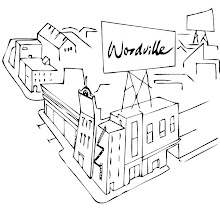A week
ago today, the office was all of a flutter as reports started to emerge of a
disturbance on Tottenham Court Road.
Now
Michael Green (the source of disruption) taught me one thing that day; if you
want to create an impact on a weekday in central London- kick off at lunchtime.
As we sat, chomping on our bagels and browsing our twitter feeds, office workers across town were roused from their state of Friday lethargy by the
noise of sirens and reports of an armed man. Suddenly there was something to
talk about- and when I say talk- I mean tweet.
Within
minutes each of us, closeted as we were in our Marylebone office, had our own
account of events. At first Starbucks was touted as a possible target but soon
it became clear that a nearby HGV training facility was the focus of unrest.
Initial reports also implicated a disgruntled employee, but then course failure
was exposed to be the bone of contention.
The
power of social media is no longer in dispute.
The 2011 protests in Egypt have been widely dubbed the Facebook revolution
and in March 2012 a viral YouTube video catapulted the Kony 2012 campaign to
fame. Never before though, has the role of social media as a disseminator of
up-to-the-minute information been made more apparent to me.
Last
Friday everyone in the surrounding offices had the opportunity to become a
reporter for the day- and they took it. Just after 12.30 the first pictures of
flying filing cabinets began to appear on twitter and soon #tcr and #HGV were
both trending. One particular YouTube video began to make an appearance. It
showed Abby Baafi, the alleged target of the attack, giving her version of
events.
Yet in
the clamour of conflicting information, some voices remained noticeably silent…
or at least frustratingly vague. Initial reports on the BBC news website seemed
to centre more on subsequent bus route diversions than the incident itself and
although certified journalists were on the scene, their voices lacked
definition against the chorus of amateurs.
The BBC
and national newspapers’ reticence in reporting is, if not reasonable, then
certainly understandable. These are organisations that have a responsibility
and legal obligation to tell the truth. Their distribution of unauthenticated
and therefore possibly false information could not only damage their reputations,
but also end in expensive liable cases.
Nevertheless,
when the modern world demands delivery of real time information, where does
this leave them? Cynics might say nowhere- that breaking news reporters are
dinosaurs due for extinction, casualties of the social media impact, but I
believe the situation is more nuanced than this.
Call me
naïve, call me nostalgic but I do not foresee the end to quality reporting
coming any time soon. Yes our approach
to media is evolving but until twitter can weed out the fact from fiction and
provide me with one objective account of events, there will always be room in
my life for the BBC.
By Polly Robinson


No comments:
Post a Comment